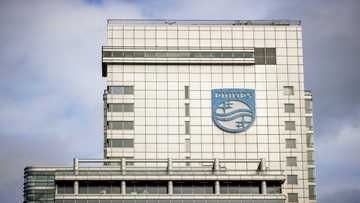US finalizes curbs on investing in Chinese tech

Source: AFP
PAY ATTENTION: Got a Minute? Complete Our Quick Survey About YEN.com.gh!
The administration of President Joe Biden has finalized curbs on US investments in sensitive technologies like semiconductors in China that pose a threat to national security, the Treasury Department said Monday.
The new rules, which take effect on January 2 next year, will prohibit US-headquartered firms, citizens, and permanent residents from engaging in transactions involving cutting-edge technology like semiconductors, artificial intelligence (AI), and quantum computing, the Treasury announced in a statement.
Investors will also be required to inform the Treasury about investments in some less advanced technologies "that may contribute to the threat to the national security of the United States," the statement added.
This will include investment in legacy semiconductors, a senior administration official told reporters on Monday.
"Artificial intelligence, semiconductors, and quantum technologies are fundamental to the development of the next generation of military, surveillance, intelligence and certain cybersecurity applications," Treasury assistant secretary for investment security Paul Rosen said in a statement.
"This final rule takes targeted and concrete measures to ensure that US investment is not exploited to advance the development of key technologies by those who may use them to threaten our national security," he added.
The rules are the result of an executive order signed by Biden last August aimed at restricting certain US investments in sensitive high-tech areas in China, including in Hong Kong and Macau.
In response, China's foreign ministry called the executive order an attempt to "engage in anti-globalization and de-sinicization," adding that Beijing was "strongly dissatisfied" and reserved the right to safeguard its interests.
Source: AFP


